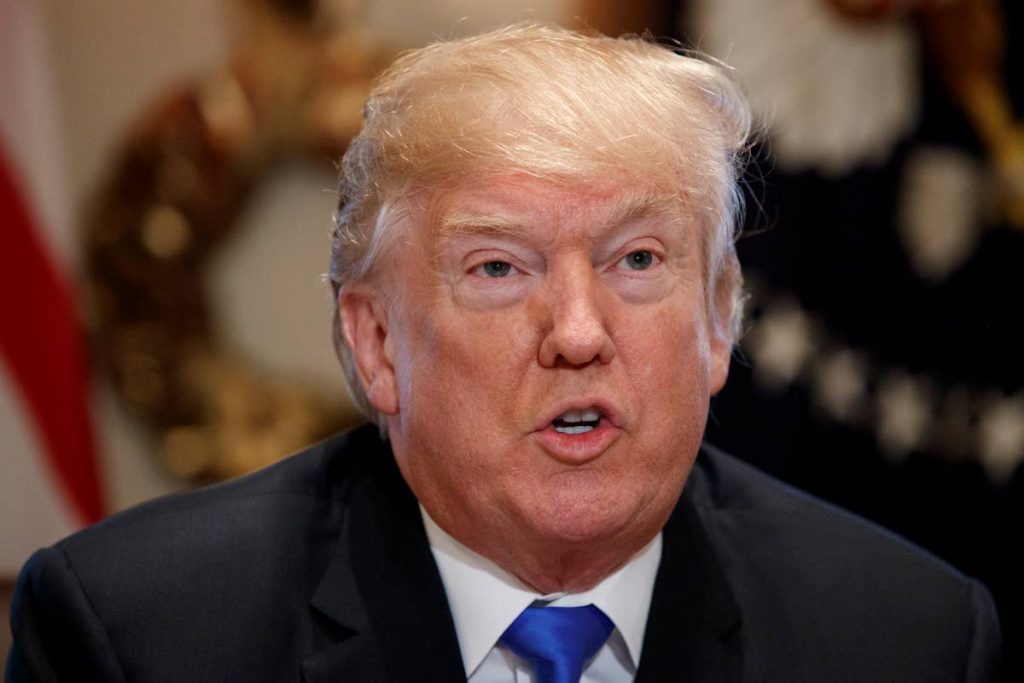War of the Words

Sharda Patasar writes a weekly column for the Newsday.
In another controversial event — controversy being the hashtag, the keyword that we can use when writing about the Trump administration now —the Trump administration has allegedly proposed a ban on seven words in the US Centers for Disease Control (CDC) budget documents for 2018.
For those who are unaware, they are: “foetus, transgender, vulnerable, diversity, entitlement, science-based and evidence-based.”
Instead of, for instance, saying foetus, the documents are to say “unborn children”?
There have been, since the announcement, several articles written over the past week addressing the ban as an infringement of the basic right to freedom of speech though one official at the CDC stated that “the assertion that there are ‘banned words’ is a complete mischaracterization of discussions regarding the budget formulation process.” (Julia Belluz, “The CDC’s “word ban” may be politics as usual. But it’s still concerning.” Vox)
In simpler terms, the Trump administration is asking, from what I am given to understand, that in applications for funding, the CDC stands a better chance of getting it if those words are not used. As a former federal official explained, “the administration is simply saying not to use it in your request for money because it will hurt you…It’s about a budget strategy to get funded.” (Independent UK, Mythili Sampathkumar). This, in my humble opinion does not make the ban – or to be politically correct, the request to remove these words from the CDC vocabulary — any better.
This alleged limiting of vocabulary sounds like an English exercise.
“Find another word for ‘good’!” or “Don’t use ‘nice,’ That’s lazy.”
These days I use “intrigue” quite a lot and I am very intrigued by the former officials’ response, because whichever way the explanation about the ban is phrased, it boils down to an infringement on the freedom of speech and expression and attempts to limit. The official who explained it as a “budget strategy to get funded” perhaps thought it was harmless?
Let’s put this another way. Basically, the Trump ban says “If you want to stand a better chance at getting funded, you will be best advised to change your vocabulary otherwise it’s zero out of a hundred for you.” Let’s play the game of maths.
I invite the public to reconstruct the idea and see what they come up with.
The Trump administration ushers in an era of bans in the land of democracy and opportunity — travel bans, trading bans and now language. Books ergo vocabulary has been the subject of censorship for a long time worldwide — from Huckleberry Finn and Alice in Wonderland to our very own VS Naipaul’s An Area of Darkness, which was banned in India for what was deemed its negative portrayal of the nation. This issue with this current alleged ban is that it’s just one among other attempts to censor, like the movement to remove the term “climate change” from government websites — The Independent UK and other publications can be consulted on this — as a show of the president’s opinion on the issue. We thought that the state’s ban on language was a thing of the past, or that it was limited to religious fanatics. It is the twenty-first century after all, and while social media act, as analysts agree, as the new-age censor for artistic work, in the Trump world, the tradition of state censorship is very much alive.
While censorship indicates to us the power of certain media and points us in the direction of those words and works that are threats to certain ideals that are deemed important, one is tempted to say that in this case, this alleged ban adheres to the ideal of one particular man.
This is an interesting development in the US, the administration’s attempt to restructure the vocabulary of the budget applications of particular health organisations.
It is worth further investigation and perhaps a thesis or two. Whenever there are attempts to censor certain words it foreshadows larger ideas developing underground.
And while, to those officials who see the ban of these seven words as “just a budget strategy,” it may be a harmless political ploy, those who are familiar with George Orwell’s insightful Animal Farm will hear resonances of the pigs’ politics involved here – the gradual rewriting of the rules that establish hierarchies, the hierarchies that say, some are better than others and some opinions matter more than others. So yes, to speak of this new development as Orwellian (although Orwell’s 1984 is the book referenced) is a very appropriate description because language is power and those who control it have the power to shape others’ realities. That can be dangerous in the hands of the wrong individual.


Comments
"War of the Words"